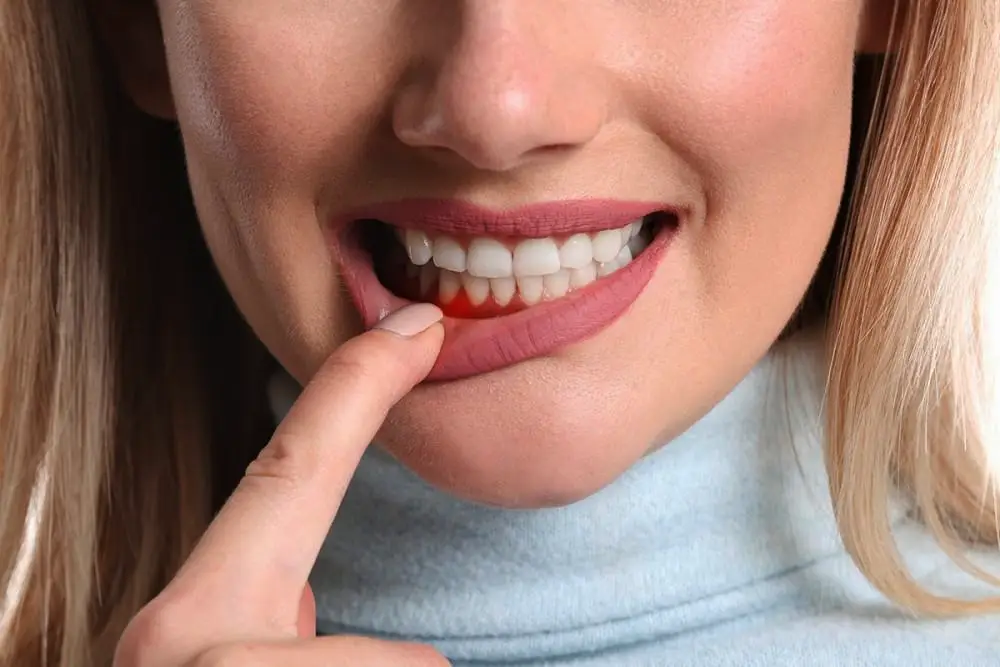Do you brush every day?
If you ask this question even to someone close to you, his facial expression, long silence, and changed breathing pattern would be enough answer.
Everyone brushes every day twice, this thing has been ingrained in our minds since our childhood.
Brushing every day twice has been rightly connected to good oral hygiene.
But if you ask someone do you floss every day?
First, there will be a long discussion on how it is not important to floss every day.
And even if someone accepts the health benefits of flossing every 24 hours, he won’t have flossed in the last 24 hours.
As per the latest stats, 20 percent world’s population doesn’t floss at all.
And those who regularly visit their dentist and pay special attention to their teeth’ health, only 4 out of 10 flosses every day.
The reasons for not flossing are many. It’s a lot of work. It takes extra few minutes and seems like an eternity. And it makes your gums bleed.
But maybe you don’t know, gums bleeding when flossing is a normal reaction, and if it is bleeding when flossing that’s a sign that you should do it more often. You visit Paragon Dental Centre for a detailed checkup.
But what for those who haven’t flossed for a while and their gums are bleeding?
Is it a sign of something wrong with their teeth, should they seek special assistance for their health?
Let’s try to unearth it.
Gums Bleeding After Not Flossing For a While
What flossing does is it removes plaque or bacteria build in the tiny spaces of your teeth before they start causing problems for your teeth.
Flossing prevents you from gingivitis, the early stage of gum disease. If gingivitis is left untreated, the plaque builds even further and leads to infecting your gums, the bone supporting your teeth, and gum tissues and in the last stage, you may lose your teeth.
Well, many will say, brushing cleans your teeth and removes everything stuck in your teeth. No, that’s not correct. The sticky colorless film that constantly builds between the tiny spaces of our teeth can’t be removed when rushing and needs to be physically removed such as flossing.
Many might try to remove this sticky film or plaque using some chemicals, but that too has proven not as effective as flossing.
The plaque or sticky film that forms between the teeth contains bacteria.
When the plaque-containing bacteria stay in between your teeth’ tiny spaces your body finds it toxic, and the bacteria start to irritate your gums if not removed regularly or over a while.
The more plaque sits or forms between your teeth, the more bacteria will stay to irritate your gums. At one point this irritation will lead to inflammation. This inflammation is an attempt by the body to defend against foreign invaders.
That inflamed area starts to get more blood to combat the invaders, more blood means more antibodies and nutrients to fight against the bacteria, and this is where your gums start to bleed.
When you are bleeding after haven’t flossed for a while that means the bacteria build-up in your teeth made your body recognize it as an attack, and to combat this attack, our body sends more blood which contains more antibodies and bacteria.
Keep In mind, if you don’t start to fix the gum irritation due to plaque buildup, and don’t take your oral hygiene very seriously, after some time, it begins to harden and the situation can worsen, when it turns to tarter.
Once the tarter forms, you won’t be able to brush or floss your teeth and will require special tools as well as assistance.
So if your teeth have started bleeding, it is an early sign that your gums are going to get infections, and you should start giving special attention to your teeth, with flossing and proper brushing.
Even if you have gingivitis, with lots of care and assistance even the gingivitis can be reversed.
So suppose your teeth are bleeding when you have not flossed for a while, and now you want to fix it, what would you do?
First thing first, you should right away take an appointment with your nearest dentist.
If you can’t take an appointment right away, or the appointment is after one week, what do you do in the meantime?
You can buy some antibacterial toothpaste there is anti-gingivitis toothpaste that you can use to fight plaque all day and night. This anti-bacterial toothpaste help reach the plaque found around your gum line and lead to healthier gums.
And also carefully monitor your brushing time. It should be at least 2-minutes, twice a day. Use brushes with soft bristles, or if possible go with an electric toothbrush that gives a more thorough cleaning compared to manual brushes.
You can also take help from antibacterial mouthwash. These mouthwashes though are not as effective as flossing but to some extent help you remove the plaque or bacteria hiding in hard-to-reach areas where the brush normally does not reach.
And lastly, don’t skip flossing. Flossing is the best and most effective tool against gingivitis, it removes the food particles or plaques that stick in between your teeth, and the area brushes normally miss.

